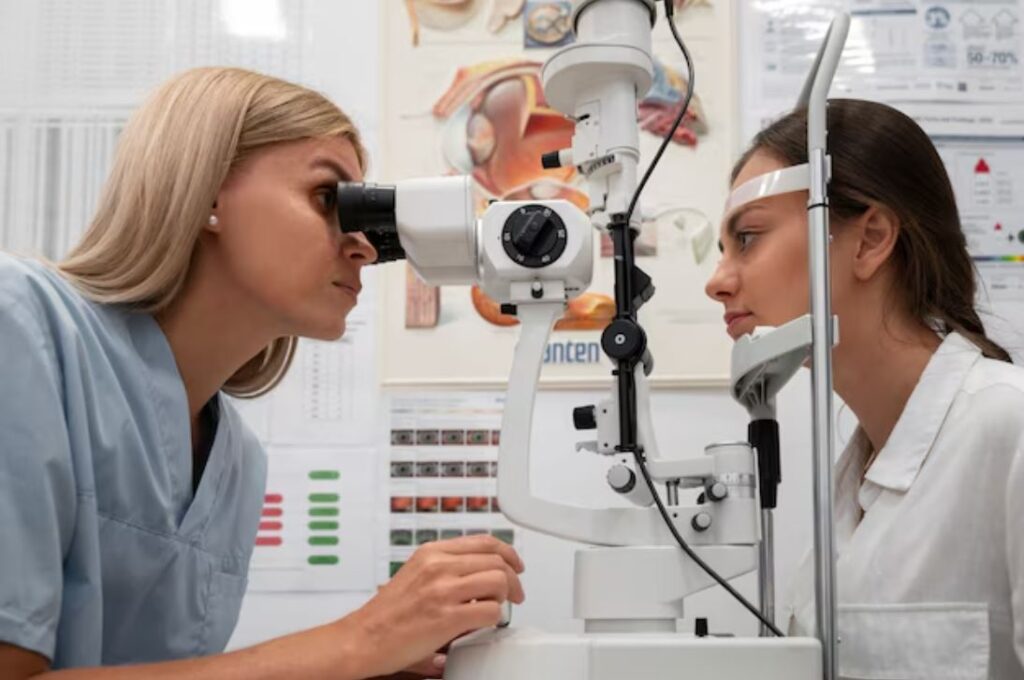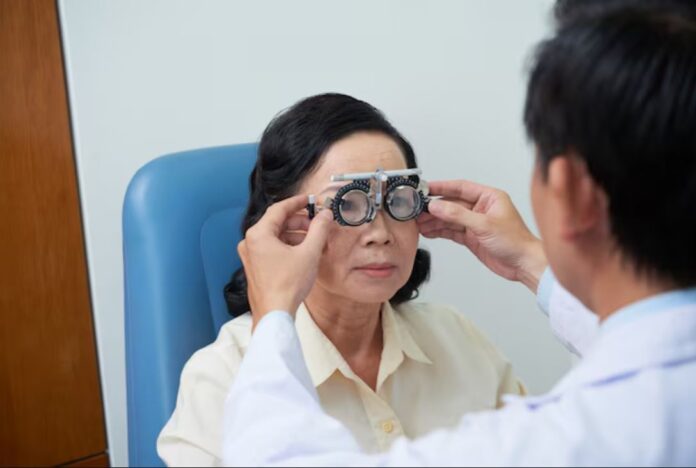Health scientists from the University of Virginia have found a previously unknown contributor to harmful blood vessel growth in the eye. This discovery can help address the formation of abnormal tangles of blood vessels, which are associated with various eye conditions like neovascular age-related macular degeneration, proliferative diabetic retinopathy, and ischemic retinal vein occlusion.
UVA’s Dr. Jayakrishna Ambati and Shao-bin Wang and their colleagues identified a key protein that determines vascular endothelial growth factor-A, or VEGF, levels, which contributes to abnormal blood vessel overgrowth in excessive amounts. When this protein was blocked in lab mice, it reduced VEGF levels in a specific manner, and the scientists observed no toxic effects on the retina where the vessel overgrowth occurred.
Why the discovery matters
There are existing treatments that target VEGF to prevent blood vessel overgrowth, which provide great benefits at first. However, they eventually fade over time, necessitating better and lasting treatments to prevent vision loss. This discovery sheds light on how ocular immune cells, such as macrophages, contribute to abnormal blood vessel growth under the retina—a question the team has been working to answer for 20 years. It’s a promising development for those at risk of eye conditions related to blood vessel overgrowth.
Neurovascular age-related macular degeneration alone affects more than 200 million people worldwide, and these findings can potentially reduce this number in the future. While it may take more research and time to turn this discovery into a treatment, there are other ways to preserve eye health.
 How to care for the eyes
How to care for the eyes
Wear sunglasses outdoors
Prolonged UV exposure can damage the eyes, from causing eye sunburns to increasing your risk of macular degeneration and cataracts. Wearing sunglasses outdoors is a must, regardless of the weather or season. A pair with 100% UVA and UVB protection is crucial for keeping your eyes safe. If you wear glasses, you don’t have to compromise between vision correction and sun protection. You can wear clip on sunglasses designed to fit over your frames. Foster Grant has a range of ClipOn sunglasses that are an affordable alternative to polarized prescription sunglasses. Styles like the Solar Shield Yukon can be worn over your frames, or the Rec M 56 can clip onto them, allowing you to protect your eyes and enjoy clear vision.
Quit smoking
Smoking is linked to a variety of health issues like lung cancer, but it also impacts your eye health. Smoking cigarettes can affect your retina, lens, and macula, leading to cloudy vision, reduced field of vision, or vision loss. People who smoke are two to three times more likely to develop cataracts and up to four times more likely to develop age-related macular degeneration than non-smokers. Smoking also affects the blood vessels, preventing the eyes from getting sufficient nutrients. Quitting smoking can lower your risk of these eye conditions, ensuring healthy eyes and longer vision. You can seek help from a local quitline or use smoke and tobacco-free alternatives like nicotine replacement therapy (NRT) products to help kick the habit.
Stay hydrated
Hydration is essential for maintaining healthy eyes; your eyes’ tears lubricate them and help remove bacteria and particles, maintaining comfort and defending against infection. Drinking water can ensure your eyes get enough hydration to avoid dryness, redness, and irritation. It’s recommended to drink eight glasses of water a day, and you can easily get hydrated by carrying around a reusable water bottle. If you frequently struggle with dryness, you can also use artificial tears to provide relief. Bausch + Lomb’s Meibo eye drops target tear evaporation, which can address symptoms and signs of dry eye disease.


